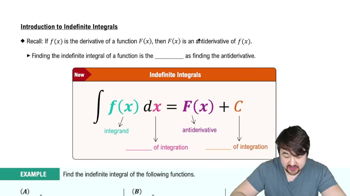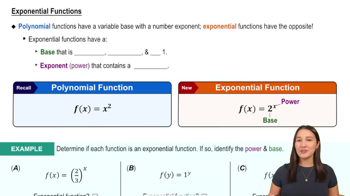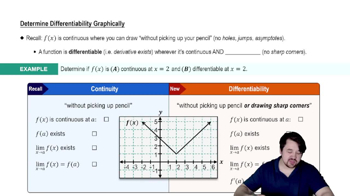23–68. Indefinite integrals Determine the following indefinite integrals. Check your work by differentiation.
∫ (6/√(4 - 4x²))dx
 Verified step by step guidance
Verified step by step guidance Verified video answer for a similar problem:
Verified video answer for a similar problem:



 5:04m
5:04mMaster Introduction to Indefinite Integrals with a bite sized video explanation from Patrick
Start learning